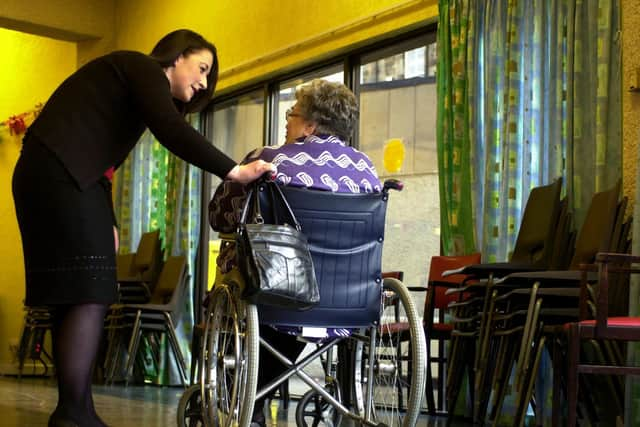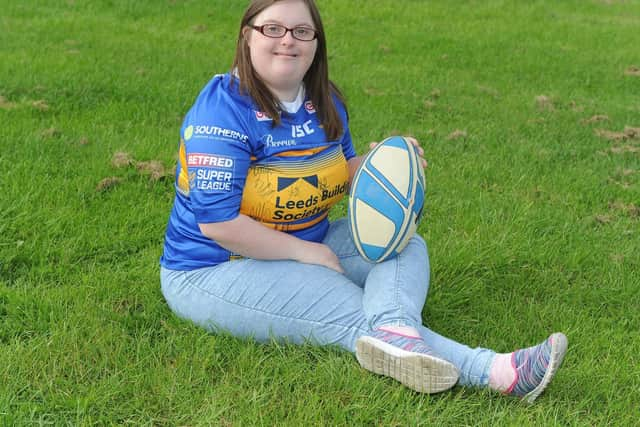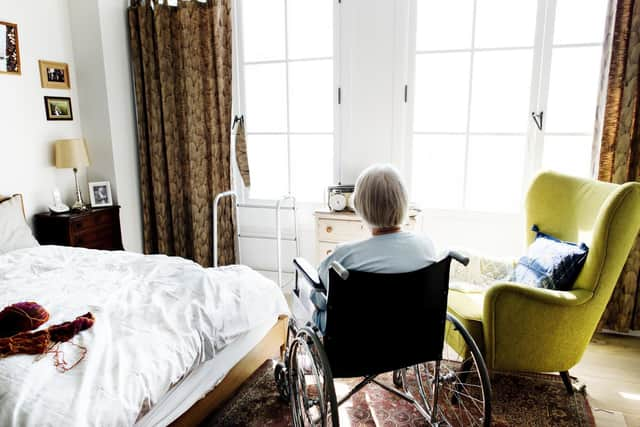Concerns as figures show less than two per cent of hate crimes targeting people with disabilities last year resulted in criminal charges
Research by charities Leonard Cheshire and United Response found that 7,333 such crimes were reported to police in England and Wales in 2019/20, of which 118 led to a charge or court summons.
Figures from local police forces in Yorkshire show there were hundreds of hate crimes reported last year which were ableist or where a person's disability was an aggravating factor.
Advertisement
Hide AdAdvertisement
Hide AdWest Yorkshire Police figures on the force's Freedom of Information disclosure log reveal there were 853-such crimes reported in 2019 – a rise from 466 in 2017.


Humberside Police recorded 132 disability-related hate crimes in 2019, a slight fall from the year before when there were 152.
North Yorkshire Police said it received 65 reports in the financial year 2019/20, of which 37 were targeted at individuals rather than general abuse spouted online or in public.
The most recent figures available from South Yorkshire Police show there were 236 hate crimes reported between 2016 and 2017 where a person's disability was a factor.
Advertisement
Hide AdAdvertisement
Hide AdHowever, Crown Prosecution Service (CPS) figures released over the summer showed that, in 2019/20, there were just 22 charges in the Yorkshire & the Humber region for disability-related hate crimes.


Teenager Amy Williamson from Leeds was one of the hundreds of young people targeted in an apparent hate crime last year, after she was intimidated by a group of youths while walking home.
The 15-year-old, who has Down's Syndrome, was left shaken up and distraught after the group surrounded her and called her names. Her mother, Karen Horner, reported the incident to the police and local councillors.
Campaigners now say they are concerned the number of incidents involving violence appeared to rise last year, while adding that online abuse of people with disabilities could also rise as a result of the coronavirus lockdown.
Advertisement
Hide AdAdvertisement
Hide AdTerry McCorry, Leonard Cheshire’s disability hate crime advocate in Northern Ireland, said: “This intolerable crime can seriously impact the lives of disabled people who are already marginalised by society.


“Social isolation can be a huge issue for disabled people and disability hate crime only serves to make people feel more reluctant to get out and about. No one should have to feel unsafe in their home or community.”
The figures were released ahead of the start of National Hate Crime Awareness Week on October 10.
National Police Chiefs’ Council lead for hate crime Mark Hamilton said: “Increases in hate crime are in part due to increased confidence of victims to report to the police and continuing efforts by police to improve recording.
Advertisement
Hide AdAdvertisement
Hide Ad“However, statistics can also represent real rises in hate crime, which do concern us. Police will take all reports of threats and abuse seriously and will work to improve justice outcomes for victims.
“We are committed to investigating any shortcoming, such as the low resolution rates identified in this report, and will take any action necessary to help protect victims and bring perpetrators to justice.
“There are a number of reasons why cases may not get to court including those where, for instance, a young person receives a caution from the police. We have agreed to undertake a national audit to help identify any issues that need attention.”
Disability hate crime is less likely to be recorded than some other forms of hate crime, and new training has been produced for officers and advice issued for carers to encourage reporting.
Support The Yorkshire Post and become a subscriber today.
Advertisement
Hide AdAdvertisement
Hide AdYour subscription will help us to continue to bring quality news to the people of Yorkshire. In return, you'll see fewer ads on site, get free access to our app and receive exclusive members-only offers.
So, please - if you can - pay for our work. Just £5 per month is the starting point. If you think that which we are trying to achieve is worth more, you can pay us what you think we are worth. By doing so, you will be investing in something that is becoming increasingly rare. Independent journalism that cares less about right and left and more about right and wrong. Journalism you can trust.
Thank you
James Mitchinson (Editor)